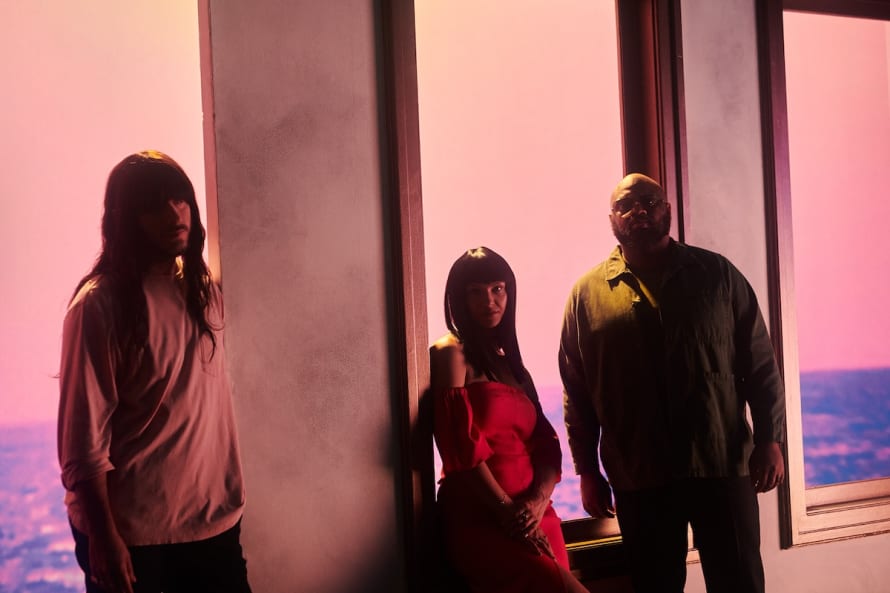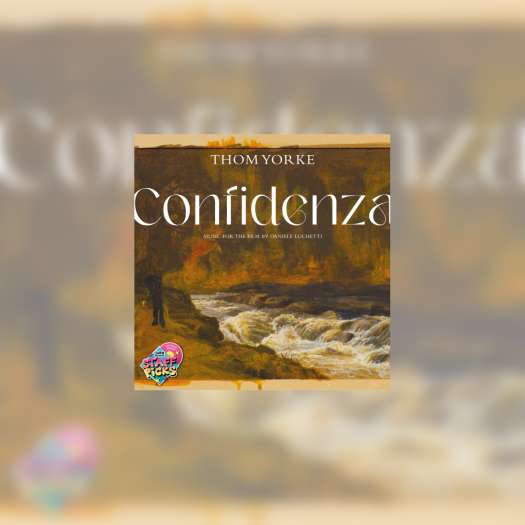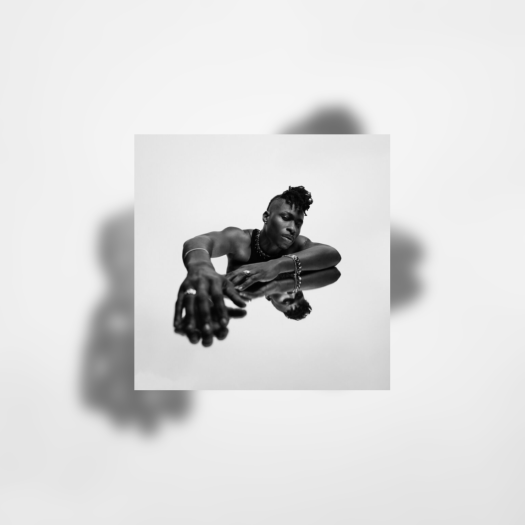"I always say we're the band that did every single thing wrong."
Over a Friday morning Zoom call, Khruangbin drummer Donald "DJ" Johnson speaks matter-of-factly through a pair of teashade sunglasses. "From inception, we've done everything that you 'shouldn't' do if you want to make it."
Anyone who was tapped into new music in 2015, when Khruangbin released their first studio album, likely had Tame Impala's Currents and Grimes's Art Angels rotating through their playlists. The New York Times dubbed it the year of musical "muchness," citing Kendrick Lamar's 78-minute triumph To Pimp a Butterfly and Joanna Newsom's densely-layered concept album Divers among a list of acclaimed projects espousing a "more is better" approach.
Given the landscape, you'd be forgiven for not betting on the Houston trio making stripped-down, Thai funk-inspired instrumental music from a family barn. The line from that Texas shed to sold-out international tours, top festival billings, hundreds of millions of streams and a Paul McCartney collaboration was not a straight one — especially with the group twisting and bending it along the way.
"When we started Khruangbin, it wasn't about trying to be a certain type of band," bassist Laura Lee explains. "While, especially in pop, you could probably advise a formula, I think when you're seeking unique, integrous originality, you almost have to make your own."
Even with a DIY guidebook to success, it's generally advisable to pick a band name that most people can pronounce. Khruangbin, pronounced Krung-Bin, means "airplane" in Thai. Though none of the members have roots in Thailand, the name was inspired by a prompt in Lee's beginner-level Rosetta Stone lesson. The group didn't anticipate their rise to fame at the time, nor the number of fans who would go on to muffle mispronounced attempts into their sleeves at local record stores.
Categorizing the trio of Lee, Johnson and guitarist Mark Speer has been another career-long head-scratcher. Write-ups typically include a word salad of "psychedelic," "surf rock," "funk" and "soul." They make the type of music you'd Shazam at a hip neighbourhood dive: smooth enough to be played in the background, singular enough to grab your attention. There are entire subreddits dedicated to describing the Khruangbin sound, but "like listening to the inside of a lava lamp" is a bit wordy for a vinyl divider.
"Our initial write-ups were from DJs playing us in downtempo mixes or at after-parties," Lee recalls. "We were in electronic magazines to the point that you Googled Khruangbin and it would say 'Genre: Electronic.' But there's literally nothing electronic about our band."
That much is clear on A LA SALA, the band's fourth studio album. Across 12 tracks, the band's tried-and-true sound remains intact: groovy drums, dubby basslines and melodic guitar. But if Mordechai, their last album made without collaborators, is the album you play during the party, A LA SALA is the one you spin after people go home, when you're sprawled out in the living room with a handful of your dearest stragglers. You might describe it as wistful or cozy, the soundtrack to a comforting dream. The band members describe it as Khruangbin going back to basics.
"We wanted to remember the simplicity, naiveté and playfulness that the three of us started with," Lee explains. "We felt a real need to just be us, with less effects and less stuff. I know that one of the things Mark noticed as Khruangbin evolved is that his pedalboard got bigger and bigger and bigger. As his pedalboard grew, it became more complicated. The bigger the stages are that you play, the more stuff you need so that everything works. He really wanted to go back to having a smaller pedal board."
Though they're downsizing anew, the less-is-more approach has always been central to the Khruangbin ethos. In another infraction of the industry's implicit rulebook, rather than recording in a professional studio, they've been using an untreated barn in Burton, TX — population 297 — as their home base.
The farm property has been in Speer's family since he was a kid and has minimal cell reception and no Wi-Fi. Their first test audiences were often the cows roaming around — and occasionally inside of — the shed. At the whim of the elements, bees and rodents, the band recorded 2015's The Universe Smiles Upon You, 2018's Con Todo El Mundo and 2020's Mordechai within the structure's non-winterized walls.
Khruangbin credit their sound, distinct for its unhurriedness, to this barn. A backdrop of birds, bugs and creaking wood has been their antidote to the sterile silence of soundproofed studios. Without silence, you rid yourself of the temptation to fill that silence, granting the music more space to breathe.
"There was a thing in the back of our minds that we always record in the barn," Johnson explains. "The barn is the fourth member of the band. But you realize that Khruangbin is the three of us. Wherever the three of us are, that's where Khruangbin happens. I think this record was a testament to that."
Out of necessity, and the logistical nightmare of their engineer having to spend a week installing a mobile recording studio in a rural shed, A LA SALA marks the first studio album the trio have recorded outside the barn, as they opted for Houston's Terminal C studios instead. To channel their rustic muse, nature sounds were pumped into their headphones during the entire recording process. These Texan soundscapes, of crickets and whistling trees, are layered into the final tracks of the album.
"We're still playing for the cows," Lee smiles.
Her face is framed, as always, by a jet-black wig, a Khruangbin signature that was cemented at their first-ever performance in 2011. Whether on stage or over Zoom, Lee and Speer never make official appearances au naturel. (Johnson, in his wide-brim fedora, seems content to sit this tradition out.)
Fans tend to experience a brief moment of shock upon realizing that their favourite band's guitarist and bassist don't, in fact, have Cleopatra-styled hair, but they largely respect the artists' desire for anonymity. On the r/Khruangbin subreddit, the fourth house rule reads: "No pictures of Mark or Laura Lee without their wigs." If you post one, fan moderators will promptly delete it.
"I never knew how grateful I would be for the wig, or how complicated it would be," Lee laughs. "I need a wig in all spots. I need one on the road. I need one in my hotel room in case I have to take a call. I need one on the bus. I need one stashed everywhere so that both versions of myself can exist."
Johnson admits to having part of Laura's wig stash in the basement of his Houston home, just in case.
Wig protocol is just one item in the band's ardently-followed Khruangbin rulebook. Lee, whose onstage fashion channels a Karen O-like allure, will never perform in the same outfit twice. If a song can't be played live by the three of them alone, they have to record it differently. All vocals, though minimal, are sung in unison to ensure that no member stands out more than any other.
There is also no click track allowed in the studio — not that they need one with Johnson in the pocket. His unshakeable rhythm has convinced many, including Paul McCartney, that Khruangbin uses a drum machine. He was able to use the same pair of drumsticks for a year and a half because his playing is so feather-light.
It's a non-peacocking style adopted by all three bandmates, but Johnson has carved out his own corner on the internet: "I heard this drummer got lost in the wilderness with no phone or watch and when they found him three years later, he knew what second it was," one YouTube comment reads.
"The drummer tells the sun exactly when to rise every morning," reads another.
You'll find thousands of variations of this bit online. For the many fans wondering: no, Johnson isn't scrolling through the comment sections himself. But his mother and friends are sending him the highlights, Lee among them.
"DJ and I specifically have things we'll send to give each other a lift. I have a voicemail from Paul McCartney saying he liked my bass playing. I sent it to DJ, so now any time I'm feeling insecure, he'll be like: 'Just remember this,'" she recounts. "One day he was telling me that, so I just sent him all these screen grabs of comments."
When you're talking to the members of Khruangbin, the depth and eclecticism of their music knowledge speaks back to you. In the middle of our conversation, Lee points to a record perched on a "now playing" shelf in the living room behind me. A small part of the cover's upper-left corner is visible over my shoulder, and it's enough for her to recognize that it's Jorge Ben's Samba Esquema Novo. "That's one of my favourites of all time," she says, most likely having clocked it minutes into the call.
If there were unofficial roles within the band, however, Speer would be Chief Music Nerd. In his absence during our interview, Johnson and Lee riff about the guitarist's extreme efforts to discover fresh music. "He wants to find that song on Spotify that has three plays and zero monthly listeners," Johnson quips.
One of Speer's tools for music discovery is Forgotify, a streaming app dedicated to the millions of Spotify songs that have been played only partially or not at all. If you've ever used the platform, it can take hours before you find a single good track. Speer sent Lee an eight-hour long Forgotify playlist.
"I don't know how long it took him to make," she laughs. But having just had a baby last year, she's grateful to have someone do the crate-digging for her.
Sending Speer music that he likes, let alone hasn't heard before, has become one of the band's internal gold-star systems. Johnson recently stumbled upon a video of someone listening to a Russian song in their car. After Shazam-ing the track, it sent him down a two-hour rabbit hole until he found an obscure Russian funk soundtrack he promptly sent to his bandmate. Though Speer hasn't responded to the text yet, Johnson is feeling confident.
"I think I got him."
Fellow Texan Leon Bridges has had a front row seat to the band's expansive music palate. Before collaborating with Khruangbin on their two massively successful EPs, Texas Sun and Texas Moon, he invited the trio to open for him on his 2018 headlining tour. Speer would play 45s for them backstage after each show, exposing Bridges to sounds and influences he hadn't heard before.
"I learned that all types of music can be a reference and inspiration," Bridges tells Exclaim! over email. "I always loved how Khruangbin could incorporate that familiarity of the blues, funk, and world vibes while still having a singular and unique sound. When I discovered they were from Houston, it was a wrap."
The global influences Bridges refers to are worn on Khruangbin's sleeve. The debut single from A LA SALA is aptly named "A Love International." The band's lyrics have jumped from Spanish to Korean to Hungarian. Debut LP The Universe Smiles Upon You was inspired by Thai artists like Khun Narin and Paradise Bangkok, leading to a "Thai funk band" label sticking despite the trio's world-spanning scope. Malian guitarists Ali Farka Touré and his son Vieux Farka Touré (the latter of whom Khruangbin collaborated with for their 2022 album Ali), Iranian pop star Googoosh, French crooner Serge Gainsbourg, and Japanese guitarist Takeshi Terauchi are among the group's long list of cited influences.
The result is a sound that pulls heavily from cultures outside of their own, delivering them to Western audiences often unfamiliar with the source material. It might be tempting to sound the appropriation alarm, but the line from appropriator to ambassador to innovator becomes more nuanced upon further consideration.
In a short-lived genre blip of the 1960s, there was a Thai guitar pop movement called "shadow music." First inspired by British instrumental group the Shadows, Thai artists blended their traditional folk styles with elements of Western surf rock, blues and rockabilly. If you listen to the sounds of Thai artists like Johnny Guitar, the Son of P.M. and Jupiter, you'll hear shadow music at work.
Khruangbin see themselves as working within this cross-cultural ping-pong, not outside of it.
"I would hope that we're just another special link in the chain, because it's been happening for years," says Johnson. "Shadow music artists were influenced by artists like James Brown, but they put their own twist on it. I think that in a sense, we're the echo to that — the influence of the influence that happened. Every time you do that, something special and unique is birthed from that process."
On paper, a trio of music nerds making a borderless blend of uncategorizable music should be niche. Even pretentious. But as they prepare to embark on their 19th tour, which includes three sold-out Toronto dates, Khruangbin's mass appeal has proven just the opposite.
"I think the difference between an accessible song and a deeply nerdy song is repetition," Lee suggests. "Something repeated that you can hum. It doesn't necessarily have to be melodic; it could be rhythmic. But if somebody can go away and still hum it, it's accessible."
Those who have been to a Khruangbin concert have seen this in action. In the absence of lyrics, fans have found their own ways to hum and sing along to the band's guitar melodies and basslines as if they're the chorus of a chart-topping pop song.
It's a form of active fan participation with a band whose success was established in streaming's era of passive consumption. If Khruangbin came onto the scene during a period of musical "muchness," they've endured through a time that encourages passive listening and algorithms over proactive music discovery and headphones-on focus. There are "no-word" concentration playlists built around what is now a growing number of Khruangbin-inspired instrumental artists. Fans have described doing everything from housework to homework with the Houston trio's tunes in the background. Of this, the band are well aware.
But, from their days plucking basslines in the barn to selling out Radio City Music Hall, Khruangbin have always adopted a "meet us where we're at" approach to music. They offer that same grace to their fans — whether you're humming along at a show or vibing over living room conversations.
"However you get in is how you get in," says Johnson. "Just as long as you're there."




